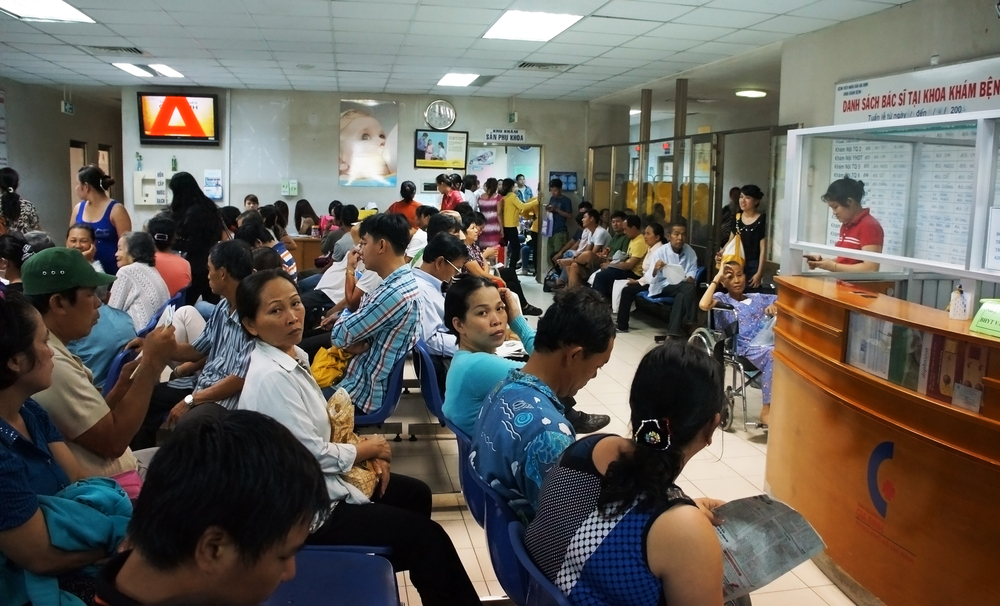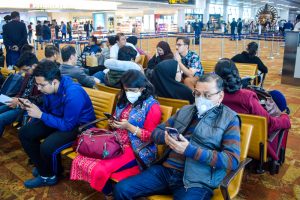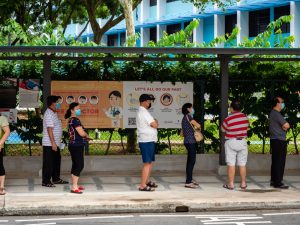Medical Channel Asia presents the weekly Asian medical news bulletin, bringing you essential healthcare news from across the region. This week’s bulletin will have various health topics.
Thailand
A 57-year-old woman had to undergo an amputation after her leg became trapped in a travelator at Bangkok’s Don Mueang airport. The incident happened when she tripped over her suitcase while on her way to board a flight. Images from the scene showed the woman’s left leg wedged underneath the travelator and a pink suitcase next to her missing two wheels. Airport management stated they were “deeply saddened” by the incident and pledged to cover her medical expenses and compensate for the partial loss of her leg.
Philippines
As the Philippines contends with a resurgence of tuberculosis (TB), Health Secretary Teodoro Herbosa announced plans to intensify efforts against the airborne disease, particularly in target areas. He revealed that approximately a million Filipinos currently have active TB, and the number of cases surged during the COVID-19 pandemic.
To combat this, the Department of Health plans to actively search for TB in impoverished areas. They include workplaces, congested jails, residential homes, care facilities, and even healthcare facilities. They also plan to strengthen advocacy campaigns to raise public awareness and intervention.
Malaysia
Malaysia’s Health Ministry has announced that as of next Wednesday, face masks will no longer be required on public transport or in healthcare facilities. The decision follows the World Health Organization’s declaration on May 5. It stated that COVID-19 is no longer a Public Health Emergency of International Concern.
Firstly, Health Minister Dr Zaliha Mustafa stated that face masks would only be mandatory for individuals who have tested positive for COVID-19 and health workers handling patients under infection control practices. Despite the easing of regulations, Dr Zaliha still strongly encourages the use of face masks on public transport, particularly among high-risk groups such as the elderly and individuals with chronic diseases.
Studies have shown that the viral load peaks in the first five days of symptom onset. Based on these findings, the isolation period for COVID-19 patients has been cut from seven days to five.
Vietnam
The Drug Administration of Vietnam, which is under the Ministry of Health (MoH), has imported 6,000 bottles of Plasma-derived Intravenous Immunoglobulin (IVIG) for the treatment of hand, foot, and mouth disease (HFMD). This quantity of drugs has met the urgent needs of hospitals. However, due to a significant increase in infection numbers, the MoH has asked importers to ensure a steady supply of IVIG to meet the growing demand.
IVIG is used as an effective adjuvant treatment in severe cases of HFMD. It helps reduce the rate of transfer and severe complications of the disease in children. However, we can only produce IVIG from human plasma. Therefore, this means that production depends entirely on the plasma supply from blood donations. We cannot manufacture it domestically.
Singapore
Eligible Singapore residents aged 60 and above can begin to register for Healthier SG, a preventative healthcare initiative. They can enrol via the HealthHub app, where they can choose a preferred clinic and book a free consultation. The program is expected to reach over 2 million Singapore residents by the end of 2024. It will provide access to various community-provided activities. Also, the Health Promotion Board intends to increase its physical activity programs by 50%. From July to November, outreach initiatives will be in place to help residents enrol.
Indonesia
Indonesian health experts and rights groups have raised concerns over a new draft law that allows authorities to collect and process a wide range of health data, including genomic data, which can potentially be exploited by malicious parties. Critics warn that insurance or pharmaceutical companies could misuse this data for business purposes. Although Indonesia passed a personal data protection bill in 2022, experts argue it is insufficient for protecting health data. They also express concerns over the elimination of a 5% minimum mandatory health spending in the annual state budget. Consequently, they fear this will affect healthcare services for the poor and vulnerable. Furthermore, healthcare workers worry about legal uncertainties for their professional organisations.













